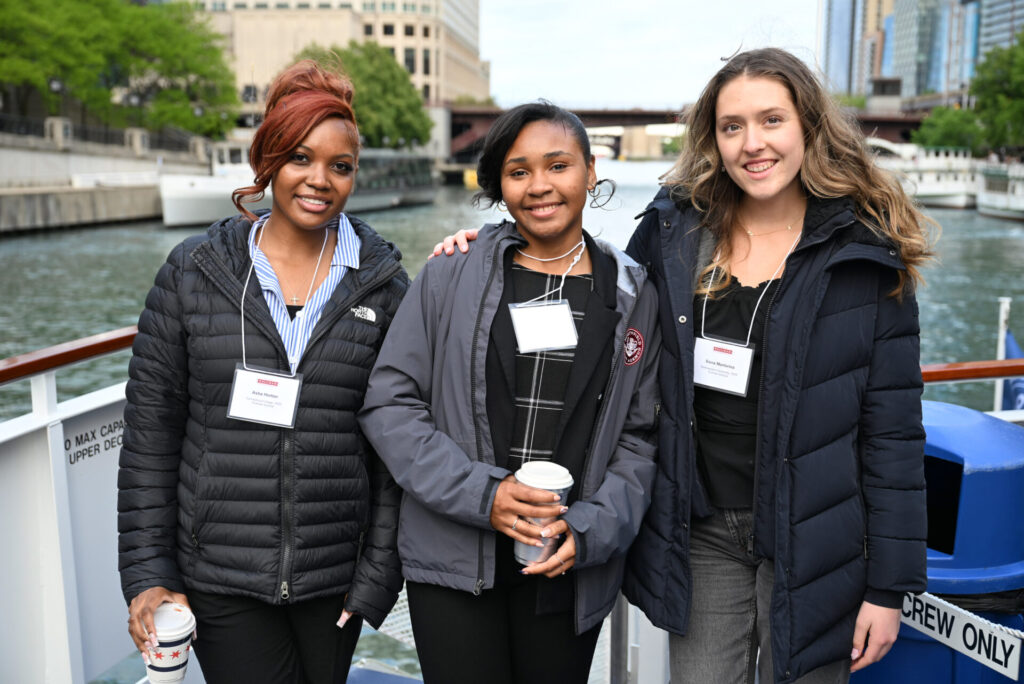By Richard W. Daspit Jr.
At the Pullman Educational Foundation, “no strings attached” is more than a phrase—it’s a principle that defines our scholarships and drives everything we do. By empowering students to pursue their own path and pairing that freedom with proactive supports like mentorship, monthly check-ins and mental health resources, Pullman Scholars achieve extraordinary outcomes: a 95% graduation rate, with 70% debt-free. This combination of independence and support fuels a powerful cycle of success and giving back that strengthens families, communities and the Pullman legacy.
Yet few know the whole story—and many conflate or confuse us with the Pullman National Historic Park and the Historic Pullman Foundation. But from the very beginning, our approach has been rooted in the vanguard principles of Chicago industrialist George M. Pullman. He believed that education was the surest route to opportunity. And in the late 19th century—when access to schooling was rare—he funded free primary and vocational education for his employees’ children.
His bequest of $1.2 million in 1897 ($40 million in today’s dollars) launched the Pullman Free School of Manual Training, which provided both boys and girls with practical education focused on self-reliance and personal advancement. Most significantly, he gave working-class youth a pathway beyond the limits of their parents’ occupations. It was a radical idea for its time: prepare students not for unskilled labor, but for the emerging professional jobs of the industrial age.
When the school closed in 1949, the George M. Pullman Educational Foundation (GPEF) was created to carry forward this vision. Rather than dictating a student’s future, Pullman’s scholarships invested in independence, maturing and confidence by offering scholarships to empower each scholar’s choices.
Portable Scholarships for Changing Times
Most scholarships come with strings—specified majors, designated schools, or geographic limits. GPEF takes a different path, allowing Pullman Scholars the freedom to choose any accredited four-year college or university in the United States. Cook County high school students are currently awarded up to $10,000 a year for four years. Most local foundation and university-administered scholarships lock their recipients into specified majors, schools or regions. Pullman’s “no strings attached” approach demonstrates an inherent trust in the scholars’ ability and self-efficacy.
That flexibility matters. Sixty of today’s 109 Pullman Scholars are first-generation students, many without the resources or networks to navigate college alone. They attend 40 different institutions, ranging from highly selective universities to high social mobility programs. And because Pullman scholarships are portable, students can transfer when needed—reflecting the reality that one in three bachelor’s candidates change majors within three years. This freedom ensures students can find the right fit for their goals—without losing crucial support.
The Pullman Scholars model has evolved into a system with layers of proactive, responsive student support. Students receive individual attention in monthly check-ins. Rather than dictating a single course of action, the proactive outreach builds the scholars’ sense of agency with resources that align with their goals and address their pain points. The recent addition of mental health services through BetterHelp is a direct response to the pressures that today’s students face.
From actively listening to the needs of its scholars, GPEF has developed practical webinars and workshops. Pullman alumni instruct scholars in real-world topics such as financial literacy, business etiquette and mental health. One graduate recently offered powerful validation for a summer job search: Never take an unpaid internship. Your time is worth something, and you deserve something in return.
An Investment in Families and Communities
The Pullman scholarship is an investment in not just in an individual, but the future of their family and community as well. Highly selective universities such as Yale, Stanford and Penn are represented, but the top choice of the current cadre is close to home–the University of Illinois at Chicago, with 13 Pullman scholars. U.S. News & World Report rates UIC consistently in its national top 10 for social mobility, graduating a substantial share of Pell Grant recipients with limited financial resources.
Illinois, Michigan and DePaul are other top choices; the University of Southern California ties with Northwestern for fifth place. The Midwestern slant reflects scholars’ calculations about the value of affordability, the quality of local institutions, and the strength of their own family and community ties. Scholars are free to stack merit-based aid, federal or state college grants, institutional aid and other private scholarships to maximize their financial support.
Individual attention and networking programs give scholars a sense that they are part of a shared project. Alumni are engaged not just as success stories but as active participants in the support system, serving as mentors, speakers and role models who have walked the same path. Their engagement inspires scholars with a sense of gratitude and a desire to give back, a virtuous cycle that strengthens the Pullman community with each new generation.
Proof in the Outcomes
The results speak for themselves. Over the past five years, 95% of Pullman Scholars have earned their degrees, with 70% graduating debt-free. Alumni form a thriving network eager to invest in the next wave of scholars.
The Pullman program has endured for 75 years because it treats scholarships as launchpads, not contracts. Our model proves that when you trust students and stand beside them with real support, the outcomes are lasting, measurable and profound.
Looking Ahead
As higher education grows more uncertain—costs rising, aid shrinking, and families under strain—the Pullman approach offers a vital reminder: the best investment we can make is to trust and empower students. With independence, support and opportunity, they will shape stronger futures for themselves, their families and our communities.
Richard W. Daspit Jr. is president of the George M. Pullman Educational Foundation (GPEF).
